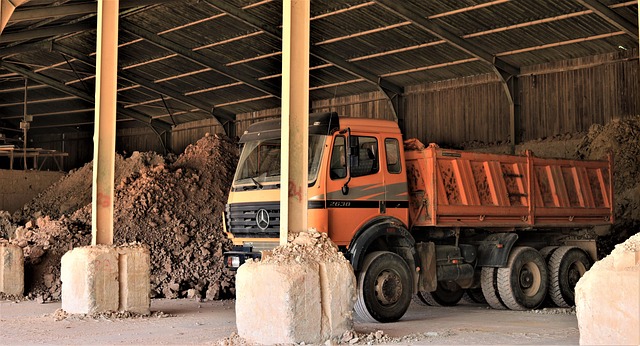Electric combi boilers streamline space heating and hot water generation with their tankless technology, offering faster heat times, consistent hot water supply, and reduced energy consumption compared to traditional systems. Their compact design, simplified installation, and minimal maintenance needs make them an attractive upgrade for both residential and commercial settings. Energy Code Standards drive efficiency and sustainability by guiding manufacturers in creating high-performance equipment that reduces greenhouse gas emissions. High-efficiency electric combi boilers optimize heat distribution, save space, and lower utility bills while promoting eco-friendly modern urban living. Their popularity grows due to their energy efficiency, simplicity of installation, and versatile capabilities for on-demand hot water and central heating.
“Discover the future of heating with high-efficiency electric combi boilers, a modern solution meeting stringent energy code standards. This article explores the transformative potential of these boilers in both residential and commercial settings. From understanding the fundamentals of electric combi boilers to examining critical energy codes, we provide an in-depth look at their key features and benefits. By delving into installation, maintenance, and future trends, you’ll gain insights into why these boilers are becoming a game-changer in heating technology.”
- Understanding Electric Combi Boilers: The Modern Heating Solution
- Energy Code Standards: A Brief Overview and Their Significance
- Key Features of High-Efficiency Electric Combi Boilers
- Benefits of Adopting These Boilers in Residential and Commercial Settings
- Navigating Installation, Maintenance, and Future Prospects
Understanding Electric Combi Boilers: The Modern Heating Solution

Electric combi boilers are modern heating solutions that combine space heating and electric hot water generation in a single, compact unit. Unlike traditional systems with separate water heaters and boilers, these electric combination boilers offer significant advantages, including faster heat up times, consistent hot water supply, and reduced energy consumption. They are ideal for both residential and commercial applications, providing efficient and effective electric central heating while eliminating the need for bulky tanks or complex piping.
The efficiency of electric combi boilers is evident in their tankless electric heating capabilities, where hot water is heated on demand. This contrasts with traditional storage heaters that maintain a constant temperature, leading to energy wastage. With combination heating technology, users enjoy instant access to hot water without sacrificing space heating performance. Moreover, the compact design and simplified installation process make electric combi boilers an attractive option for homeowners looking to modernize their heating systems or for commercial properties seeking energy-efficient space heating systems.
Energy Code Standards: A Brief Overview and Their Significance

Energy Code Standards have emerged as a cornerstone in the pursuit of energy efficiency and sustainability, particularly within the heating and hot water sectors. These standards, established by governing bodies, set benchmarks for manufacturers to design and produce equipment that minimizes energy consumption while maximizing performance. For electric combi boilers, adhering to these stringent criteria is paramount not just for environmental reasons but also for ensuring cost-effectiveness for homeowners.
The significance lies in the fact that these codes govern various aspects such as insulation, heating elements’ efficiency, and overall system design, encouraging the adoption of tankless electric heating solutions like electric combination boilers. By promoting energy efficient boilers and compact heating systems, these standards contribute to reducing greenhouse gas emissions and lessening the environmental impact of residential electric heating and space heating systems, including electric HVAC boilers.
Key Features of High-Efficiency Electric Combi Boilers

High-efficiency electric combi boilers are revolutionizing residential and commercial space heating systems with their compact size and versatile capabilities. These cutting-edge devices combine water heating and central heating in a single, seamless unit, eliminating the need for separate storage tanks or complex piping networks. The result is not only a more streamlined installation but also significant energy savings.
Key features include advanced combination heating technology that optimizes heat distribution, ensuring efficient electric hot water heating on demand. This tankless electric heating approach reduces energy wastage associated with traditional systems, making it an eco-friendly option. Moreover, these boilers offer precise temperature control, allowing for customizable comfort levels throughout the building. With their sleek design and space-saving capabilities, electric combi boilers are ideal for modern, urban living spaces where energy efficiency and convenience are paramount.
Benefits of Adopting These Boilers in Residential and Commercial Settings

Adopting high-efficiency electric combi boilers offers significant advantages in both residential and commercial settings. These boilers are designed to provide instant hot water and central heating with exceptional energy efficiency, eliminating the need for separate hot water tanks. This not only saves space but also reduces energy consumption, leading to lower utility bills and a smaller carbon footprint. Electric combination boilers are particularly appealing for retrofitting older buildings or those with limited space due to their compact size and efficient design.
In residential applications, electric combi boilers can enhance comfort while simplifying installation processes. They eliminate the need for complex plumbing systems, making them ideal for smaller homes or apartments. Commercially, these boilers are transforming space heating systems by offering tankless electric heating solutions, which are cost-effective and easy to maintain. By embracing electric combination boiler technology, businesses can improve their energy efficiency, reduce operational costs, and contribute to a more sustainable future through cleaner and greener energy sources.
Navigating Installation, Maintenance, and Future Prospects

The installation process for a high-efficiency electric combi boiler is relatively straightforward, especially when compared to traditional gas or oil-fired systems. This ease of installation, coupled with minimal maintenance requirements, makes it an attractive option for both residential and commercial properties. Regular cleaning and flushing are recommended to ensure optimal performance and longevity, but many modern models feature self-cleaning mechanisms, reducing the need for frequent upkeep.
Looking ahead, electric combi boilers offer promising prospects in the realm of energy efficiency and sustainability. With increasing environmental concerns, the demand for tankless electric heating solutions like electric combination boilers is rising. These compact heating systems not only provide efficient space heating but also deliver on-demand hot water, making them a versatile choice for modern living. The future looks bright for electric central heating, with continuous innovations in technology promising even greater energy savings and improved performance across various electric HVAC boilers.
High-efficiency electric combi boilers, with their ability to meet stringent energy code standards, represent a significant step forward in modern heating solutions. By combining space heating and hot water production, these boilers offer numerous benefits for both residential and commercial applications. Their key features, such as high energy efficiency, compact design, and reduced environmental impact, make them an attractive option. As the adoption of electric combi boilers continues to grow, proper installation, maintenance, and understanding future prospects will ensure their longevity and continued contribution to sustainable energy practices.
